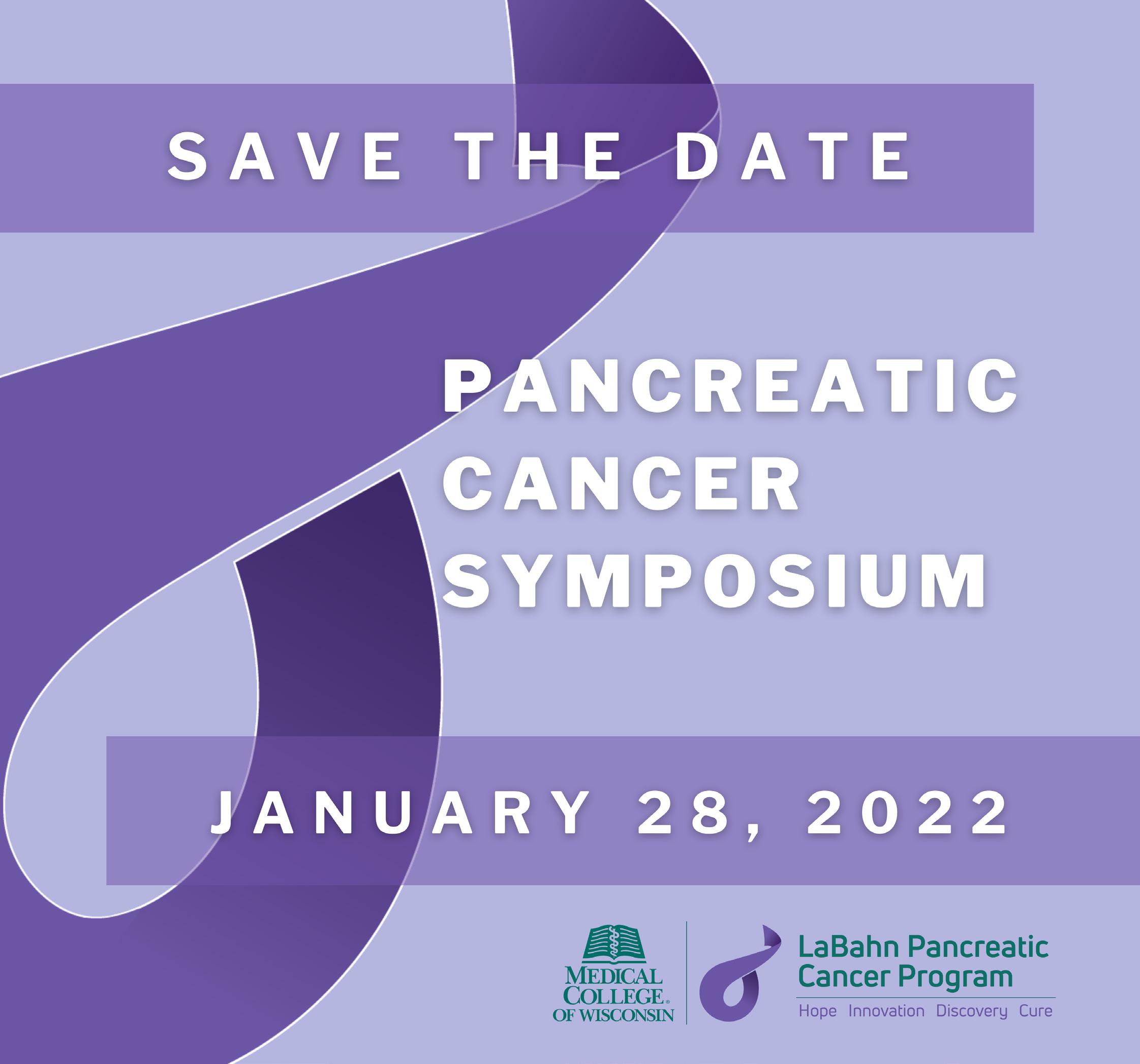
12 minute read
Resources
Marshall A. Beckman, MD, MA
Associate Professor, Division of Trauma & Acute Care Surgery; Trauma Medical Director, Froedtert Menomonee Falls Hospital
Almost all of us in healthcare have had some training in ethics during our education. Many of us remember the scenarios that are used to illustrate ethical principles such as autonomy, beneficence, non-maleficence and justice. One scenario that some of us may remember is where there is a small amount of medication to offer to a large group of people. There is not enough medication to treat the whole group. The exercise is designed to stimulate critical thinking about who should be offered the medication. This scenario refers to the bioethical principle of justice. Up until recent times, many of these scenarios were just additions to the ethics curriculum at our respective training institutions. The COVID-19 pandemic has forced all to think back to those scenarios and apply them to real life. We all read about the concern for insufficient numbers of ventilators, ICU beds and, more recently, the oxygen shortages in India. Let’s get back to the justice question. Briefly, justice is the concept that resources should be distributed fairly. Seems simple. However, when one thinks carefully about what is “fair,” things become decidedly more complex. Who gets to decide what is fair? During “ethics school,” many of us were taught that we should approach these decisions in a way that we provided the greatest good. This may be an approach that preserves the most life years. For example, it has been discussed that during the pandemic with a potential shortage of ventilators, we should allocate them to younger individuals. Younger patients have a higher chance that they would survive the infection, and if they did survive the infection, they would have a long life ahead of them. For many people, this seems like a reasonable approach and was discussed during most of our ethics curriculum. Now, however, the scenario is more real, perhaps than it has ever been. With the life-years approach, real people that we know and treat may be deprived of needed interventions due to their age. In April 2020, the Coalition of Wisconsin Aging Groups wrote a letter to the then secretary-designee of the Wisconsin Department of Health Services asking that age not be a criteria for ventilator allocation. In their letter, they stated that the Age Discrimination Act of 1975 states that “no person ... shall, on the basis of age, be excluded from participation in, be denied the benefits of, or be subjected to discrimination under, any program or activity receiving Federal financial assistance.” Section 1557 of the Affordable Care Act incorporated the ADA of 1975 to expand “protections to all health programs and activities who receive federal financial assistance.”1
Justice would have us keep the possibility of ageism in mind as we make our resource allocation decisions. This is a tall order, but something that we do every day with each of our patients. We decide who receives surgery or other intervention based on all physiologic factors that a patient may have and not just the age of the patient. I think that is all the aging advocates desire.
What about those of us who treat patients with life threatening problems? Should we be given more access to life-saving interventions like ventilators? It seems to many people that health care providers should get access to these interventions so that we can get back to doing what we do: caring for sick people. There were high level discussions at Froedtert and the Medical College of Wisconsin about how to handle this question. It was decided that health care providers not get preferential access to ventilators due to the debilitating nature of COVID-19 respiratory failure. That is, even if there was preference given, it would be unlikely to maintain the number of health care providers available to treat sick patients.
Vaccinations, on the other hand, were a different story. It was felt by many that health care providers should have the first place in line. This would allow them to likely avoid the ravages of COVID-19 and continue to care for the sick in the community. There was a very high demand for the vaccinations when they first became available. Decisions were made to vaccinate health care providers first, for obvious reasons. There was also a push to vaccinate older citizens because they are the most vulnerable.
Justice or fair allocation of resources has become a prominent issue as we work our way through providing care during a pandemic. What may have been an abstract scenario during our education became a concept that requires a lot of thought to be fair. I would remind all of us in health care that we have access to many of the things that are important to heal people in Western Medicine.

Figure 1: The COVID-19 vaccination (Photo by MCW).
We have access to medications, operating rooms, ICUs, ability to do procedures, etc. We are also the main or even sole arbiters of who gets those things. That fact could be seen as a conflict of interest. I challenge us all to approach each clinical decision without bias of race, gender, sexual orientation, age, ethnicity or creed. Many of us have become aware of the systemic discrimination of which various groups have been victims in the delivery of health care. Given that we have the health care knowledge and decides who gets it, justice in health care is a focal point of decisions we make every day, not just deciding who gets a ventilator.
FOR ADDITIONAL INFORMATION on this topic, visit www.mcw.edu/surgery or contact Dr. Marshall Beckman at mbeckman@mcw.edu.
REFERENCES 1. https://www.justiceinaging.org/wp-content/ uploads/2020/04/WI-Ventilator-Allocation-Policy-
Clean-Version-4-24-2020-1.pdf accessed 5/24/2021 at 1734

Leading the Way

DIVISION OF SURGICAL ONCOLOGY
Mochamad Muska Nataliansyah, MD, MPH, PhD, completed his medical degree at Trisakti University where he practiced as a primary care physician before pursuing his MPH at Gadjah Mada University. He pioneered the use of telehealth in outlying areas of Jakarta, Indonesia. He then moved to the United States to purse his PhD at the University of Iowa College of Public Health. His research has focused on utilizing management and implementation sciences to identify strategies for advancing community health and patient care while improving healthcare systems. Dr. Nataliansyah will join the LaBahn Pancreatic Research Program and will also be a core member of the Collaborative for Healthcare Delivery Science (CHDS). As an implementation scientist, his professional effort will be primarily research-based, leading qualitative and quantitative research projects in the areas of oncology and population health.
Mochamad Muska Nataliansyah, MD, MPH, PhD
Daniel N. Holena, MD, MCSE DIVISION OF TRAUMA & ACUTE CARE SURGERY
Daniel N. Holena, MD, MCSE, joins the Department of Surgery faculty this month as Associate Professor of Surgery from the University of Pennsylvania where he is currently Section Chief of the Emergency Surgery Service and Director of Trauma Video Review. Dr. Holena received his medical degree from State University of New York at Stony Brook and completed general surgery residency at WeillCornell School of Medicine. He joined the faculty of the University of Pennsylvania following completion of their Trauma and Critical Care Fellowship program. He also received a Master of Science in Clinical Epidemiology from the University of Pennsylvania’s Center for Clinical Epidemiology and Biostatistics. An NIH-funded researcher, Dr. Holena joins the Division of Trauma and Acute Care Surgery as the Director of Trauma/ACS Research. His research focuses on the quality of care after injury. He will provide clinical care of patients on the Trauma, Acute Care Surgery and Critical Care services.
Christian J. Kastrup, PhD
Christian J. Kastrup, PhD, joins the Department of Surgery faculty this month as Professor of Surgery concurrent with his appointment as Senior Investigator at Versiti Blood Research Institute. Most recently, he was Associate Professor in the Michael Smith Laboratories and Department of Biochemistry & Molecular Biology at the University of British Columbia (UBC) and is a member of the Centre for Blood Research and Associate Member of the School of Biomedical Engineering. Dr. Kastrup received his PhD in Chemistry at the University of Chicago, where he specialized in chemical biology, microfluidics, and blood coagulation biochemistry with Rustem Ismagilov. During his postdoctoral fellowship at MIT, he specialized in engineering biomaterials for drug delivery to blood vessels with Robert Langer and Daniel Anderson. Dr. Kastrup has spunout two companies from UBC; he is the Chief Scientific Officer and a founding member of CoMotion Drug Delivery Systems, Inc., which is currently working to develop a hemostatic agent for severe combat and surgical hemorrhage, and he is a founding member and advisor of Nanovation Therapeutics, Inc. His research is funded in part by the U.S. Army and the Canadian Armed Forces. Dr. Kastrup’s clinical and translational research collaborations with the Division of Trauma and Acute Care Surgery will focus on trauma-associated hemostasis.
Timothy J. Geier, PhD
Timothy J. Geier, PhD, will join the Department of Surgery faculty in November as Assistant Professor of Surgery from Advocate Aurora Healthcare in Oshkosh, where he is currently a Clinical Psychologist. Dr. Geier completed our department’s Trauma and Health Psychology Postdoctoral Clinical and Research Fellowship Program under the mentorship of Dr. Terri deRoon-Cassini. He earned his PhD in Psychology from the University of Wisconsin – Milwaukee and completed a psychology internship at the Hennepin County Medical Center in Minneapolis. Dr. Geier’s practice will be focused on patients of the Trauma and Acute Care Surgery inpatient and outpatient services.
2021 WE CARE AWARD RECIPIENTS
“Differential Immune Response to Stereotactic vs. Conventional Radiation Therapy in Pancreatic Cancer”
William Hall, MD Associate Professor, Department of Radiation Oncology
“Observation vs. Embolization in Severe Splenic injury - A Randomized Controlled Trial”
Thomas Carver, MD Associate Professor, Division of Trauma and Acute Care Surgery
FACULTY BY SPECIALTY
Bariatric & Minimally Invasive Gastrointestinal Surgery Matthew I. Goldblatt, MD Jon C. Gould, MD, MBA Rana M. Higgins, MD Andrew S. Kastenmeier, MD Tammy L. Kindel, MD, PhD Kathleen Lak, MD Cardiac Surgery G. Hossein Almassi, MD Nilto C. De Oliveira, MD Lucian A. Durham III, MD, PhD Viktor Hraska, MD, PhD David L. Joyce, MD, MBA Lyle D. Joyce, MD, PhD Takushi Kohmoto, MD, PhD, MBA* R. Eric Lilly, MD* James E. Mace MD Michael E. Mitchell, MD* Paul J. Pearson, MD, PhD Elyan Ruiz Solano MD H. Adam Ubert, MD Ronald K. Woods, MD, PhD* Colorectal Surgery Jed F. Calata, MD Kirk A. Ludwig, MD Mary F. Otterson, MD, MS Carrie Y. Peterson, MD, MS* Timothy J. Ridolfi, MD, MS Community Surgery Robert J. Brodish, MD T. Clark Gamblin, MD, MS, MBA Dean E. Klinger, MD Kaizad Machhi, MD Kevin V. Moss, MD Eric A. Soneson, MD Mark A. Timm, MD Pediatric General & Thoracic Surgery John J. Aiken, MD* Casey M. Calkins, MD* Brian T. Craig, MD John C. Densmore, MD* Katherine T. Flynn-O’Brien, MD, MPH David M. Gourlay, MD* Tammy L. Kindel, MD, PhD Dave R. Lal, MD, MPH* Pediatric General & Thoracic Surgery, continued Keith T. Oldham, MD* Jose H. Salazar Osuna, MD, PhD Thomas T. Sato, MD* Jack G. Schneider, MD* Kyle Van Arendonk, MD, PhD Amy J. Wagner, MD* Research Faculty Mohammed Aldakkak, MD John E. Baker, PhD Young-In Chi, PhD Mats Hidestrand, PhD Christian J. Kastrup, PhD Gwen Lomberk, PhD Angela J. Mathison, PhD Aoy T. Mitchell, PhD Mochamad Muska Nataliansyah, MD, MPH, PhD Kirkwood Pritchard, Jr., PhD Raul A. Urrutia, MD Surgical Oncology– Breast Surgery Chandler S. Cortina, MD* Amanda L. Kong, MD, MS* Caitlin R. Patten, MD* Tina W.F. Yen, MD, MS Surgical Oncology– Endocrine Surgery Sophie Dream, MD* Douglas B. Evans, MD* Jennifer L. Rabaglia, MD, MSc Tracy S. Wang, MD, MPH* Tina W.F. Yen, MD, MS Surgical Oncology–Hepatobiliary and Pancreas Surgery Kathleen K. Christians, MD Callisia N. Clarke, MD, MS Douglas B. Evans, MD* T. Clark Gamblin, MD, MS, MBA Karen E. Kersting, PhD, LCP Susan Tsai, MD, MHS Surgical Oncology– Regional Therapies Callisia N. Clarke, MD, MS T. Clark Gamblin, MD, MS, MBA Anai N. Kothari, MD, MS Ugwuji N. Maduekwe, MD, MMSc Thoracic Surgery Mario G. Gasparri, MD* David W. Johnstone, MD* Paul L. Linsky, MD* Transplant Surgery Francisco A. Durazo, MD Calvin M. Eriksen, MD Johnny C. Hong, MD Christopher P. Johnson, MD Joohyun Kim, MD, PhD Priyal Patel, MD Terra R. Pearson, MD Jenessa S. Price, PhD Allan M. Roza, MD Motaz A. Selim, MBBCh, MSC, MD Melissa Wong, MD Stephanie Zanowski, PhD Michael A. Zimmerman, MD Trauma/ACS Marshall A. Beckman, MD, MA* Nathan A. Carlson, MD Thomas Carver, MD Christopher S. Davis, MD, MPH Marc A. de Moya, MD Terri A. deRoon-Cassini, PhD Christopher Dodgion, MD, MSPH, MBA Anuoluwapo F. Elegbede, MsC, MD Timothy J. Geier, PhD, LP (11/21) Daniel N. Holena, MD, MCSE Katie Iverson, MD, MPH Christina Megal, DNP, APNP, FNP-C, CWON-AP, CFCN David J. Milia, MD* Rachel S. Morris, MD Patrick B. Murphy, MD, MSc, MPH Todd A. Neideen, MD Jacob R. Peschman, MD Andrew T. Schramm, PhD Libby Schroeder, MD Lewis B. Somberg, MD, MSS* Colleen Trevino, MSN, FNP, PhD Travis P. Webb, MD, MHPE Vascular & Endovascular Surgery Shahriar Alizadegan, MD* Kellie R. Brown, MD* Joseph P. Hart, MD, RVT, RVPI Nathan W. Kugler, MD* Brian D. Lewis, MD Mona S. Li, MD* Michael J. Malinowski, MD* Neel Mansukhani, MD Peter J. Rossi, MD* Abby Rothstein, MD* Affiliated Institution Program Directors Gary T. Sweet Jr., MD Aspirus Wausau Hospital James Rydlewicz, MD Aurora–Grafton Nicholas Meyer, MD Columbia St. Mary’s Hospital Joseph C. Battista, MD St. Joseph’s Hospital John G. Touzious, MD Waukesha Memorial Hospital Chief Advance Practice Providers Stephen W. Robischon, PA-C Ambulatory Chief Cynthia L. Schulzetenberg, PA-C Inpatient Chief Chief Surgical Residents (2021-2022) Christina Bence, MD Kelly Boyle, MD Bonnie Chow, MD Emma Gibson, MD Andrew Goelz, MD Katherine Hu, MD Zoe Lake, MD Matthew Madion Jr., MD Erin Strong, MD MPH Administrative Chief Surgical Residents (2021-2022) Christina Bence, MD Matthew Madion Jr., MD

Department of Surgery 8701 Watertown Plank Road
Milwaukee, WI 53226
Check out our website for a current list of upcoming events! www.mcw.edu/surgery

Department of Surgery Dedicated to Clinical Care, Research, and Education • Cardiothoracic Surgery • Colorectal Surgery • Community Surgery • Surgical Education • Minimally Invasive & Gastrointestinal
Surgery • Pediatric Surgery • Research • Surgical Oncology • Transplant Surgery • Trauma/ACS • Vascular & Endovascular Surgery
Leading the Way is published three times yearly by The Medical College of Wisconsin – Department of Surgery, 8701 Watertown
Plank Road, Milwaukee, WI 53226 ©2020
Editors:
Rana Higgins, MD
Theresa Neitzel, tneitzel@mcw.edu
Designer:
Liz Chen, echen@mcw.edu Leading the Way is written for physicians for medical education purposes only. It does not provide a complete overview of the topics covered and should not replace the independent judgment of a physician about the appropriateness or risks of a procedure for a given patient.




